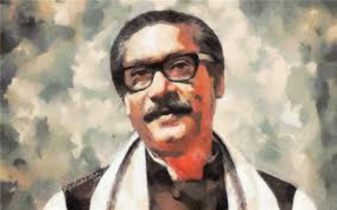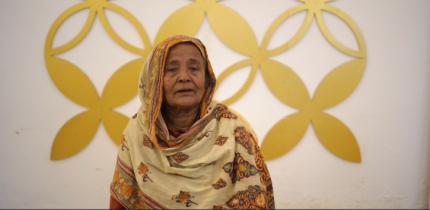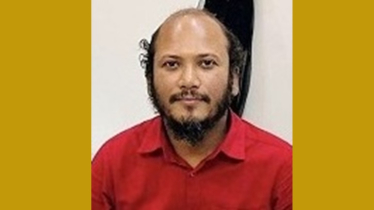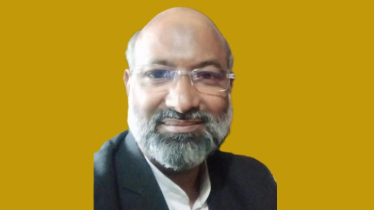
Photo: S M Mizanur Rahaman
In an era characterized by economic disparity and social inequality, the concept of social business, pioneered by Dr. Muhammad Yunus, stands as a beacon of hope and innovation. Dr. Yunus, renowned for his groundbreaking work with Grameen Bank and his Nobel Peace Prize, has not only revolutionized the way we approach poverty alleviation but has also redefined the very essence of business and social responsibility.
Social business, as envisioned by Dr. Yunus, transcends the traditional boundaries of profit-making enterprises. It is a model designed to address pressing social issues while ensuring that business practices align with ethical and community-focused principles. Unlike conventional businesses that primarily seek profit maximization for shareholders, social businesses are established with the primary goal of solving societal problems. Any profits generated are reinvested to further the social mission rather than being distributed as dividends.
Dr. Yunus’s approach to social business is deeply rooted in the belief that financial and social objectives are not mutually exclusive. His innovative model, which began with microcredit through Grameen Bank, demonstrated that providing small loans to the impoverished could uplift entire communities while fostering economic self-sufficiency. This concept of microcredit has since been emulated globally, proving that financial tools can indeed be harnessed for social good.
The principles of social business go beyond mere financial transactions; they embed a sense of purpose into the core of the enterprise. For Dr. Yunus, the success of a social business is measured not just by its financial performance but by its impact on improving lives. His vision is encapsulated in his belief that businesses should be designed to address the needs of the poor and marginalized, transforming the traditional capitalist model into one that prioritizes human welfare.
Dr. Yunus’s advocacy for social business has extended beyond Grameen Bank. He has established numerous social enterprises worldwide, including in sectors such as healthcare, education, and renewable energy. These ventures reflect his unwavering commitment to leveraging entrepreneurial spirit for social change. For instance, his initiatives in healthcare aim to make essential services affordable and accessible to underserved populations, while his work in renewable energy seeks to provide sustainable solutions to communities lacking basic utilities.
The success of Dr. Yunus’s social business model is evident in the widespread adoption of these principles across the globe. Many governments, corporations, and non-profits have integrated social business practices into their operations, inspired by Yunus’s revolutionary approach. This global movement highlights a growing recognition that addressing social challenges requires innovative and inclusive business strategies.
However, despite the widespread acclaim and the transformative impact of social business, Dr. Yunus’s journey has not been without challenges. Critics have occasionally questioned the scalability and sustainability of social business models, while political and economic turbulence has sometimes impeded the progress of his initiatives. Nevertheless, Dr. Yunus’s resilience and dedication to his mission continue to drive forward the agenda of social entrepreneurship.
Actually, Grameen Bank, founded by Professor Muhammad Yunus, has revolutionized rural banking with a model that directly addresses the needs of the poor. The essence of Grameen Bank’s philosophy is to bring banking services to the doorsteps of borrowers. This approach eliminates the barriers of complex documentation and makes banking accessible to those who are often marginalized by traditional financial institutions.
Grameen Bank’s success is evidenced by its extensive operations across Bangladesh. With 2,568 branches, the bank has achieved remarkable financial stability, with deposits totaling 25 thousand crores and receivables standing at 17 thousand crores. The bank boasts a high realization rate of 97%, and its deposits are 153% of its receivables—figures that underscore its efficient and sustainable model.
Beyond its impressive local performance, Grameen Bank has garnered global recognition. The bank operates in 97 countries, with a model that has influenced international financial practices. It has become a beacon of hope and a subject of study for scholars, journalists, and students worldwide. The bank charges a fee for research work, reflecting its role as an exemplar in microfinance and poverty alleviation.
The popularity of Grameen Bank is not just a matter of its operational success; it is also a testament to the trust and credibility it has earned among the rural population. With 1 crore 5 lakh members, representing around 4 crore 2 million people, Grameen Bank stands as a testament to the efficacy of its approach. Its ability to deliver banking services with honesty and dedication has set it apart from traditional banks, which often struggle to replicate such success.
Professor Yunus’s achievement was met with national pride, and his influence extended far beyond Bangladesh’s borders. He has been awarded honorary doctorates from 62 countries, and the Yunus Center operates in 109 universities worldwide. His speeches have been highly sought after, with invitations coming from across the globe. These events are often funded by the hosting organizations, underscoring the high regard in which he is held internationally. His eloquence in both Bengali and English has further cemented his reputation as a distinguished global speaker.
Despite these accolades and his profound contributions to social business and poverty alleviation, Yunus’s relationship with his home country’s political establishment has been fraught with tension. The Awami League government, rather than celebrating his achievements, has been critical, labeling him with derogatory terms such as “money-laundering usurer” and accusing him of bribery. Such criticisms are not only unfounded but seem to reflect a broader failure to appreciate Yunus’s monumental impact on both national and international stages.
Yunus’s lifestyle remains remarkably humble, in line with the principles of Grameen Bank. He has eschewed extravagance, often sitting on simple wooden chairs during his tenure as Managing Director and interacting with members on basic mats and rattan mats. This simplicity underscores his commitment to the principles of his institution, which is fundamentally about serving the poor with dignity and respect.
The contrast between Yunus's global acclaim and the domestic reception he has received highlights a troubling disconnect. It seems as though the virtues of those who bring global prestige to their country are not always recognized or valued at home. This disjunction was evident in the comments made about the Padma Bridge, where the political discourse seemed more about undermining Yunus’s Nobel Prize rather than acknowledging his contributions.
The question arises: why does a nation fail to honor its own heroes? The legacy of Bangabandhu Sheikh Mujibur Rahman, who led Bangladesh to independence and laid the foundation for a poverty-free future, faces a similar lack of recognition. The irony is glaring—while Yunus's work and achievements should be a source of national pride, they have instead been marred by contentious politics.
Ultimately, it is a matter of national regret that our country has not fully embraced and celebrated its virtuous sons and daughters. The inability to respect and value such individuals diminishes the national spirit and the potential for future achievements. As we reflect on the impact of figures like Professor Yunus, we must recognize the importance of honoring and supporting those who elevate our nation on the global stage, ensuring that their contributions are celebrated rather than overshadowed by political discord.
In the wake of these controversies, there is a renewed focus on leadership as the country faces critical challenges. With the interim government now in place, there is a collective hope that the new leadership will embody integrity and dedication. Many express confidence that the interim government’s responsibilities are entrusted to a principled individual who will steer the country through these turbulent times.
As former colleagues and supporters of Professor Yunus, the staff at Grameen Bank remain committed to upholding his vision and values. They stand united in their reverence for Yunus and his enduring impact on their work and lives. The hope is that the country, guided by honest leadership, will continue to progress without losing momentum, and that the lessons and inspiration derived from Yunus’s legacy will remain a cornerstone of Grameen Bank’s mission.
As the nation looks forward, there is optimism that the principles of honesty and dedication will guide the country’s leadership and ensure continued advancement.
Author is a columnist and a social thinker
U

.png)







